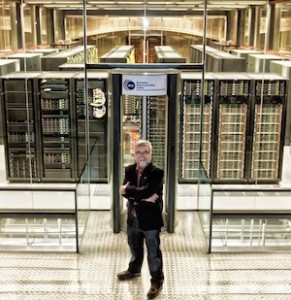Today the Barcelona Supercomputing Center announced plans to host EuroHPC processor technologies within its future Mare Norstrom 5 supercomputer. The EuroHPC Joint Undertaking has chosen BSC to be one of the main centers to host pre-exascale computers co-funded by the European Union.
BSC’s director, Mateo Valero, who is the scientific coordinator for the development of the first accelerator (GPU), explains the initiative to incorporate an experimental platform in the MareNostrum 5 assuring that “Europe, because of security and sovereignty reasons, can not proceed with the high level of dependence that it shows regarding computing technologies made in other continents.”
At the BSC, we are firmly persuaded that the development of our own technology must be a priority for the European researchers in computational sciences,” said Valero. “The great challenges of society, such as the study of climate change and the development of new energies such as fusion will need exascale computers.”
According to BSC, the future MareNostrum 5 supercomputer will be a heterogeneous system with a peak performance of 200 Petaflops. The use of heterogeneous architectures results in the fact that current supercomputers have to meet different computational needs. Some works, for instance, mainly require a high computing capacity, whereas others need more capacity of analysis in real time, and others need both types of capacities, such as the ones regarding personalized medicine or the simulation of power generation processes.
Offering an heterogenous architecture, probably based on two big clusters with different characteristics, is BSC’s proposal to optimize both response times and energy use of the different works that the future supercomputer will have to compute. The details of this heterogenous architecture will be defined as the works of definition and the infrastructure tender progress.
MareNostrum 5 will cost roughly 223 million Euros, which is the expected budget for the purchase, installation, and operation of 5 years. The 50% of this budget will be funded by the EU, and the other 50% by the states that will be a part of the consortium that support the proposal.
Sign up for our insideHPC Newsletter





